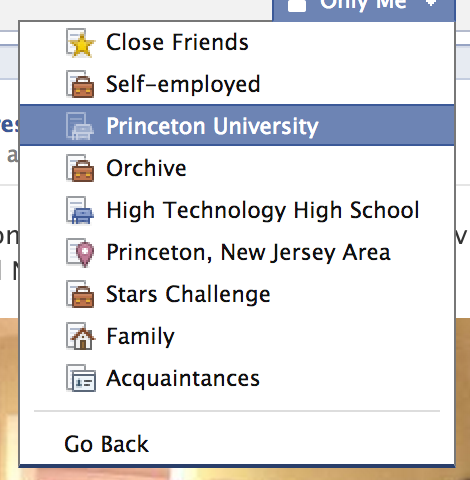For the past few days, a “meme” has been spreading around Facebook where people declare the information on their profiles as their rightful property. Because Facebook recently changed their guidelines regarding user privacy, Facebook members decided to take it upon themselves to declare a “copyright” on personal information shared online.
“In response to the new Facebook guidelines I hereby declare that my copyright is attached to all of my personal details, illustrations, comics, paintings, music, professional photos and videos, etc. (as a result of the Berne Convention). For commercial use of the above my written consent is needed at all times!
By the present communiqué, I notify Facebook that it is strictly forbidden to disclose, copy, distribute, disseminate, or take any other action against me on the basis of this profile and/or its contents. The aforementioned prohibited actions also apply to employees, students, agents and/or any staff under Facebook’s direction or control. The content of this profile is private and confidential information. The violation of my privacy is punished by law (UCC 1 1-308-308 1-103 and the Rome Statute).
Facebook is now an open capital entity. All members are recommended to publish a notice like this, or if you prefer, you may copy and paste this version. If you do not publish a statement at least once, you will be tacitly allowing the use of elements such as your photos as well as the information contained in your profile status updates.”
When this popped up on my News Feed, I’ll admit I was skeptical – how would a simple post on your profile prevent Facebook from doing what it wants with your information? I found it ironic that people share their information with all of their friends via the Facebook platform, but take offense when Facebook has access to that data. As it turns out, posting this doesn’t do anything as there was not a change of policy to begin with, as Facebook pointed out in a recent response to the widespread meme:
There is a rumor circulating that Facebook is making a change related to ownership of users’ information or the content they post to the site. This is false. Anyone who uses Facebook owns and controls the content and information they post, as stated in our terms. They control how that content and information is shared. That is our policy, and it always has been.
-http://newsroom.fb.com/Fact-Check
But, as Professor Ed Felten points out in his blog post titled “Facebook Copyright Statement not Entirely Silly,” the users have reason in reposting the meme. How naïve is it to believe that Facebook would change their policies without the general public knowing? After all, their terms of use don’t contain the most heartening words – “Your continued use of Facebook following changes to our terms constitutes your acceptance of our amended terms.” I’ll admit that when I first saw the post going around, I became a bit worried for my own security and re-posted the status (albeit with the privacy settings set to “Only Me”).
So why are the posters getting so much flack from their friends? I, for one, have seen many a friend get comment-blasted with phrases such as “legal naivety” and “meaningless jargon” along with the more cruel ones such as “you don’t know what the –censored- you’re talking about.” Indeed, the popular comedy site Collegehumor made a video entitled “Facebook Law for Idiots” (which you can see here: http://www.collegehumor.com/video/6851490/facebook-law-for-idiots) which bashes people for their uninformed use of legal terms. However, what’s wrong with overprotecting yourself? It’s already been established that Facebook users are justified in being concerned about their information security – you’re using a site that won’t even tell you when they change their policies.
I found it interesting that the Facebook reply didn’t address the enforceability of the post. I noticed this the first time that I read it, and my suspicions were confirmed when I read Professor Felton’s post. Given the hypothetical scenario that Facebook did change their policies, what on earth could the users do to counteract it? Continued use of the site is a tacit agreement of the terms of use, but then personal information is unprotected. Thus, a user may reason, if Facebook can tell me that words on a webpage constitute a binding agreement, then why wouldn’t I think the same of my posts?
I would like to end this post with the following hypothetical: say I posted something on my wall. Then, a friend copied the post and made it his own status. Who do those words belong to? We’re using Facebook’s servers to host our personal information, but a third party can sweep in and do with the data what they will. Honestly, I don’t think that there really can be such thing as “owning one’s personal information” on such an open area such as the Internet. What belongs to whom becomes a confusing subject when access to information becomes easier by the day.




